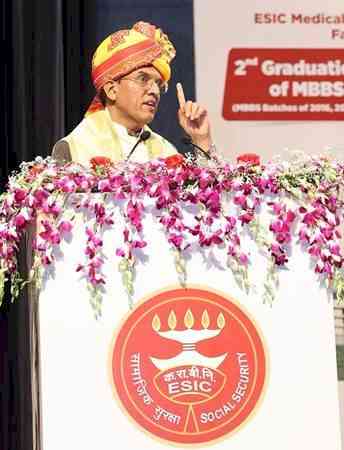UNICEF, FB building safer online experiences for children

New Delhi: UNICEF India and Facebook on Monday launched a joint initiative on ending violence against children with a special focus on online safety.
The partnership seeks to create a safe environment for children online and offline. It aims to improve children's resilience and capacity to access the digital world safely, increase awareness on violence against children and its impact on children, families, and communities, as well as increase skills of communities and frontline workers to better prevent and respond to violence.
The year-long initiative will include a nation-wide social media awareness campaign, and capacity building for 100,000 school children on online safety, digital literacy, and psychosocial support.
"The Covid-19 pandemic has increased chances for children to face violence -- whether online or offline. Acknowledging the significant efforts being made to end violence against children, it's important different stakeholders come together, to increase awareness, change behaviours and perceptions around how, when and where violence against children occurs. This is critical to promote better understanding of violence and most effective ways to ensure child safety both online and offline," said Yasumasa Kimura, UNICEF India Deputy Representative Programmes, in a statement.
"Being online gives young people so many choices. It gives them skills such as self-control and resilience that can help them make decisions that will lead to positive outcomes both online and offline. Protecting children online is important to us and we take this responsibility seriously. Today, we are delighted to partner with UNICEF to make the internet safe for children and young audiences," added Madhu Sirohi, Facebook Head of Programmes and Outreach.
The partnership will enable children to participate in public life by using the power of digital platforms, and to advocate for issues they care about, Sirohi said.


 IANS
IANS 








